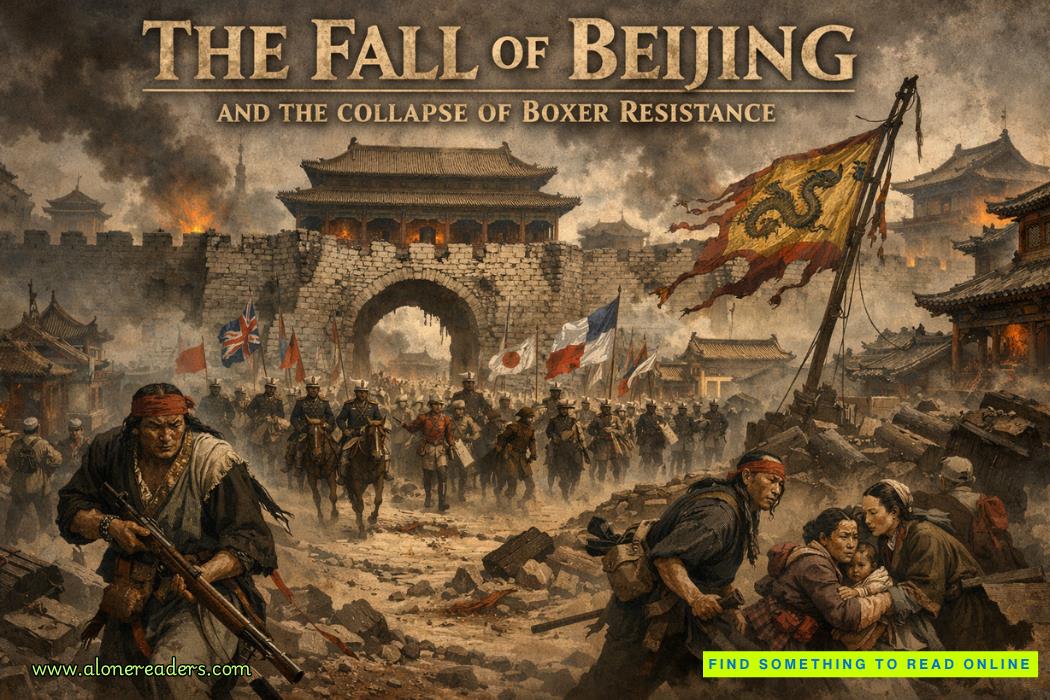The park was the quietest part of the city. Grouse clucked in the underbrush, accompanying a distant rush from the river. They passed a young man in a coat and work pants, sweeping the walkway clean of needles. A woman in a shawl of metal beads knelt off the path with head bowed, muttering a prayer for a loved one’s departed energy to pass safely through the endless black of the Void, to find rest in the Afterplane.
Milana wore her silver-robed attendant disguisetoowell, earning nods from each passerby, not a single suspicious glance straying to Fi and her cart. All this for an art heist?
Not Fi’s business. She moved cargo. Her clients decided what to do with it.
At the center of the grove, their path skirted a stone amphitheater.
Fi’s people believed in gods, once: Great Beasts who raised the mountains when they fought, carved valleys out of stone. As technology grew vaster, the world grew smaller. Souls were nothing more than energy, gone to the Void in death. Buildings of metal and stone tamed the riverbanks. Explorers found no gods lurking in the forests.
There were only daeyari.
The garden’s amphitheater was less a shrine, more a reminder. Energy conduits cobwebbed stone pillars, silver lamplight illuminating the reason Fi kept every visit to Thomaskweld brief: a bronze statue of the reigning Lord Daeyari, Antal.
Metal made harsh lines of his lean frame and raised chin. A slender tail, five feet long at least, arced around his ankles. Astrid’s antlers would never surpass a few inches—vavriter,the daeyari word for hybrids, meant “half antler,” she’d told Fi once—but a daeyari’s grew with age. Antal’s were sharp tipped, sleek to his head as befitted a predator. They arced backward like a circlet, three points each side, the farthest tips just beginning to curve up into the crown worn by older members of his species.
At least, two and a half centuries counted as young by daeyari standards. Territory rulers changed rarely, this one a mere fifty years in power. Maybe inexperience was the reason for Antal’s laxness compared to other territories, leaving his human governor to rule without interference.
Or maybe this daeyari just didn’t give a shit. So long as food came delivered, why bother with bureaucracy?
In the shadow of the amphitheater, they reached the deepest section of the grove, hardly a trickle of sunlight through needles.
“It’s here, yes?” Milana whispered.
She glanced over the empty path, the wide cedar trunks, clearly unable to see it. Fi could: the translucent glint of a Curtain wavering in the shadows. Mildly annoying that she’d never found this one herself, but she supposed that was the price of avoiding this part of the city. She stepped off the path and ran her bare fingers through the cold, weightless ripple on the air.
“There are no existing Curtains inside the capitol complex,” Milana said. “But this is the closest Shard we know of.”
Fi offered a hand. “Have you done this before?”
Milana grimaced. “Not my favorite…”
They grasped hands, a stab of cold as Fi pulled them both through the Curtain.
A Shard lay on the other side, a field of frosted shale, crumbling into nothing at the edges. Void sky hung over petrified trees with gossamer leaves—like nothing on the Planes, adapted to survive on the meager light that somehow seeped into thissunless reality. Overhead, the aurora floated purple-red instead of green, humming whispers that were almost words.
Fi’s shoulders eased, a breath of familiar ozone-laced air enough to settle nerves.
Beside her, Milana shivered. Most humans were uncomfortable, staring into the emptiness of the Void.
Not that there wasnothingout there. The four Season-Locked Planes were unusual, linked directly by Bridges, operating more like islands than separate slips of reality. But there were other Planes across the Void—hundreds more, not connected by Bridges, but accessible by navigating the smaller Shards in between, a maze of stepping stones to other civilizations.
Maybe that was why Fi always got that odd prick on her neck when she looked into the Void—as if something, somewhere, was staring back.
Behind her, loose stones clacked. Aisinay stepped through the Curtain on her own, cart in tow, finned ears perked as she inhaled an appreciative huff of Void air.
“Can you see a way through to the capitol?” Milana asked.
Fi was about to find out.
Seeing Curtains came innately to a Voidwalker. Slicing new ones was, energetically speaking, not much more difficult. The danger came in ensuring something lay on the other side.
Planes and Shards were distinct physical spaces, but they weren’t necessarilyindifferent spaces. Planes lay over each other like stacked parchment, separated by layers of Void, scraps of smaller tissue paper—Shards—scattering the space in between. Fi could move from a Shard to a Plane. From one Shard to another Shard. But cutting a Curtain anywhere one piece of realitydidn’toverlap another? Ended with a step into the deadly maw of the Void itself.
She let her gaze soften. Reality had thinner walls than mostpeople would be comfortable to realize. Where Shardsdidoverlap a Plane, boundaries could blur. As Fi’s eyes slipped out of focus, transparent images drifted into her vision, phantom outlines of the Winter Plane. A cedar tree. The stone path. She took a step. There lay the city parkway lined in streetlamps. A wall of red stone. Another step.
She Shaped energy out of her forearm, a current of silver thin as a blade at her fingertips.
Then she plunged her hand through the air.















